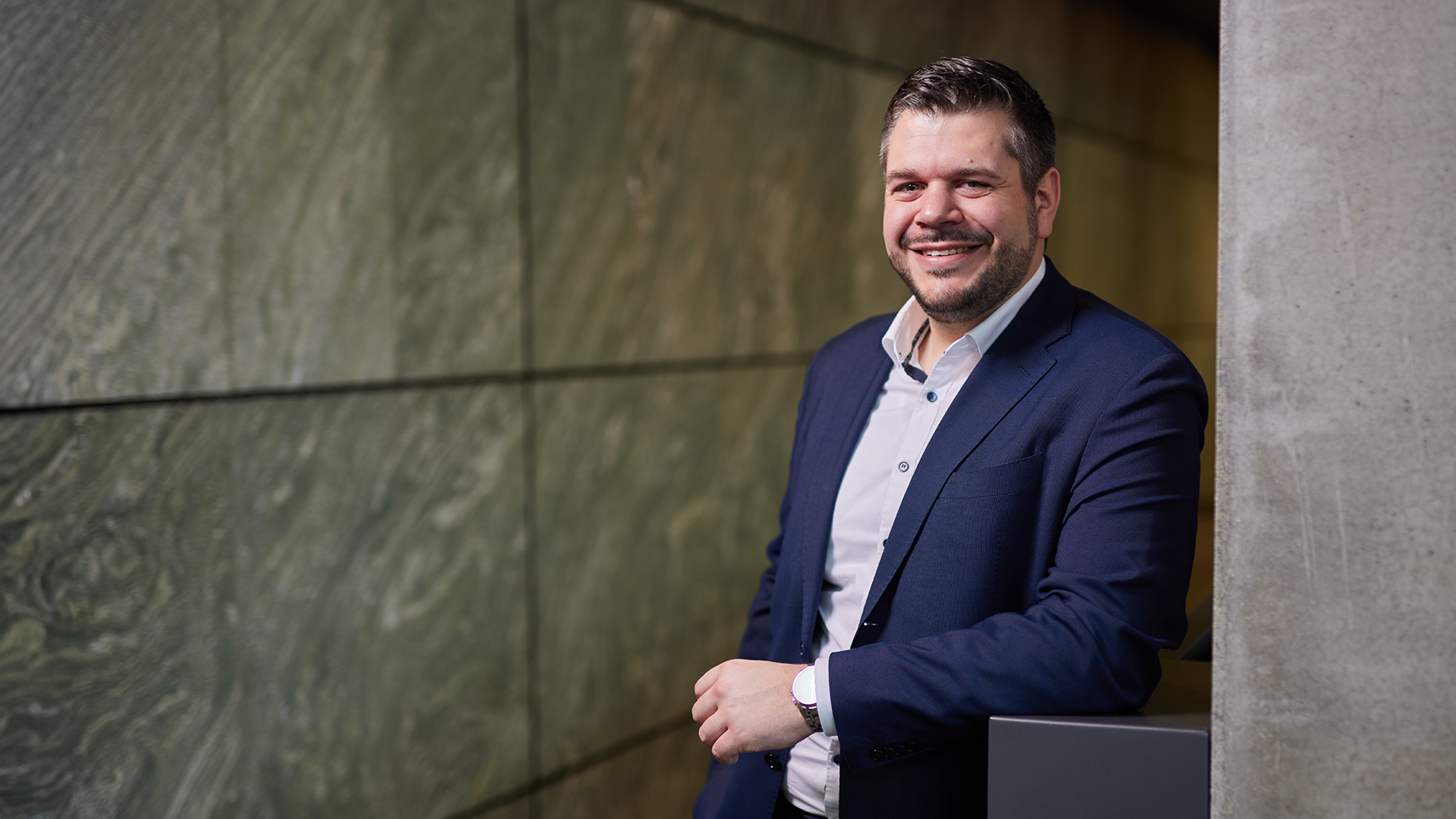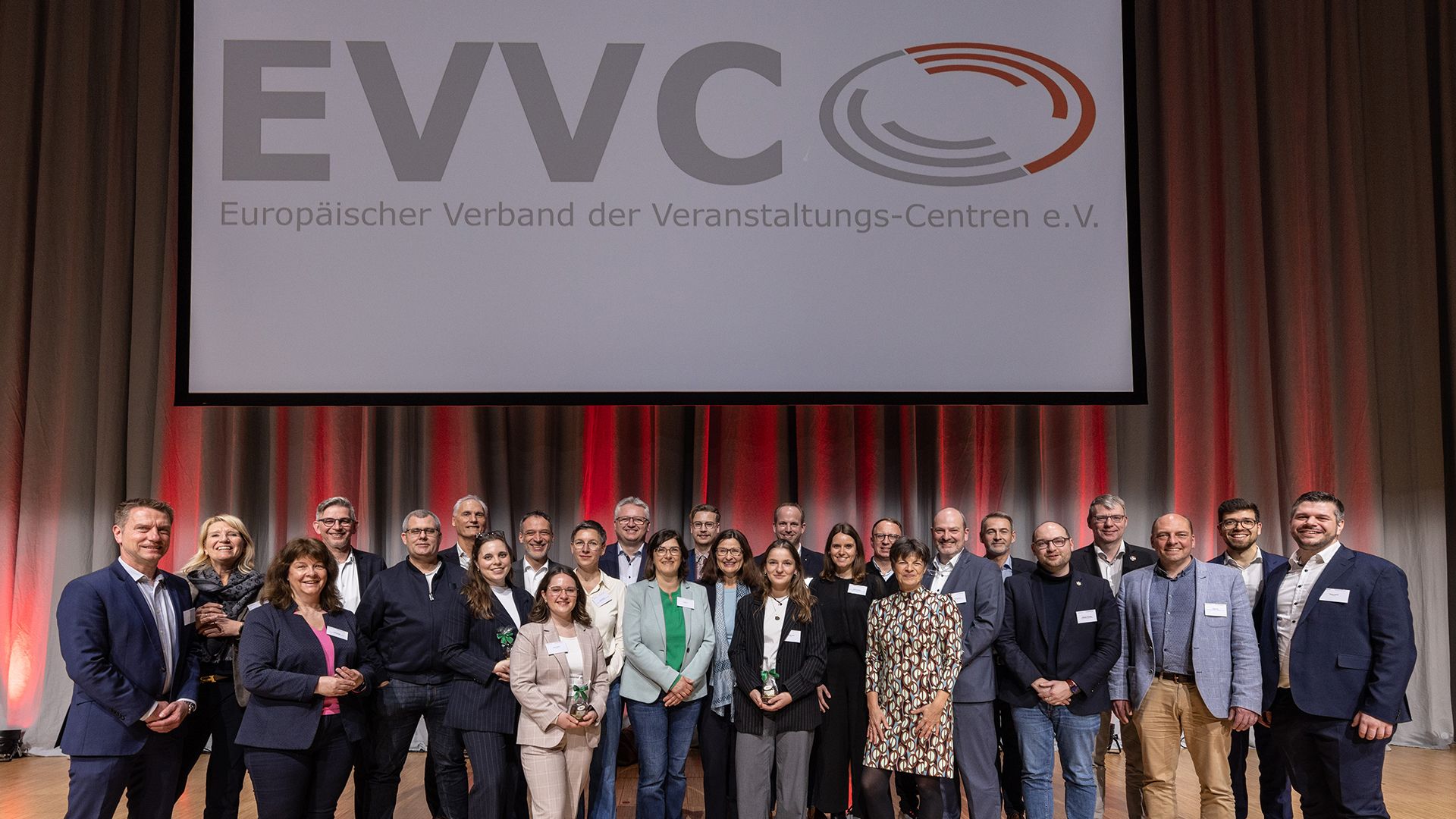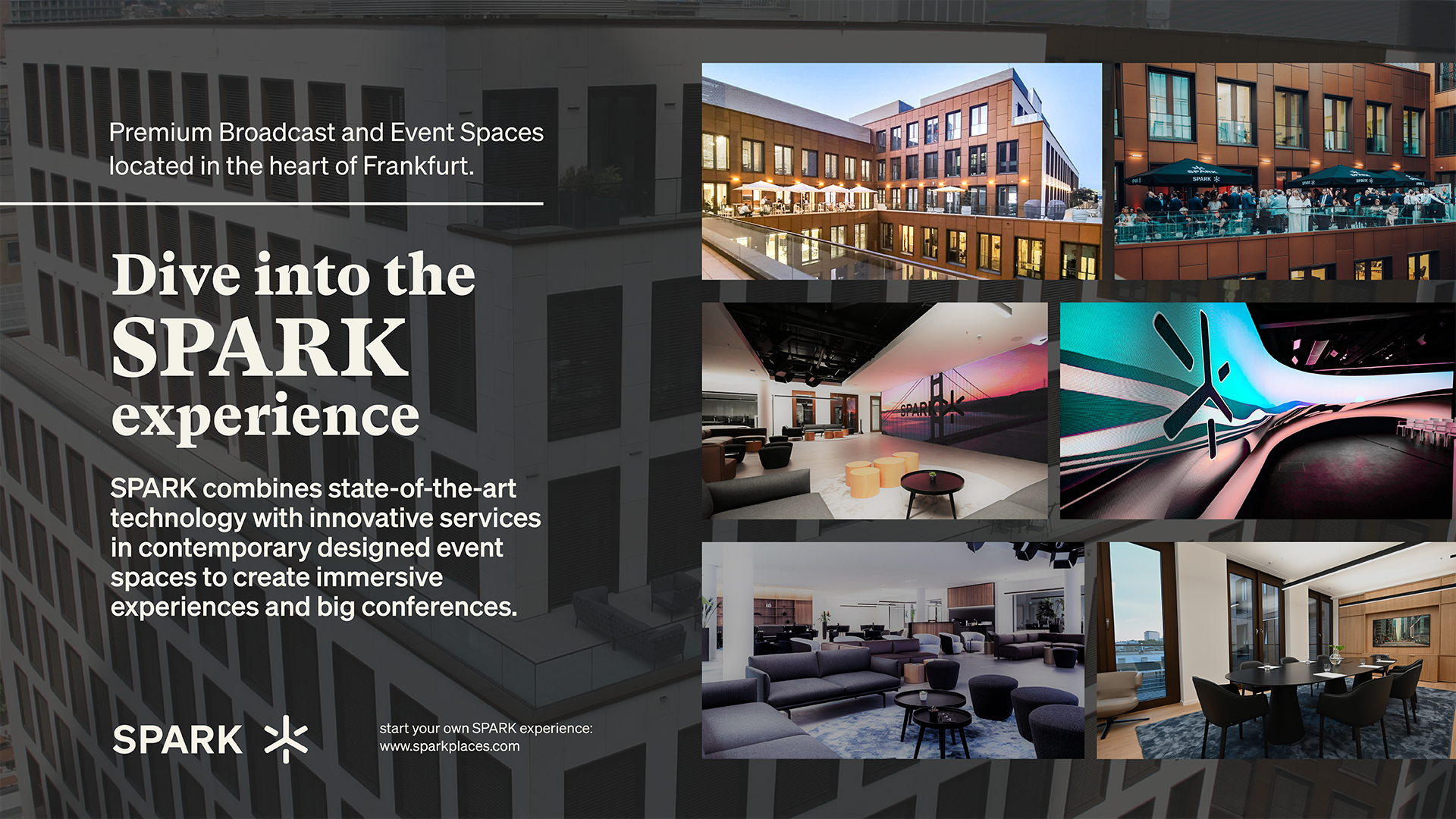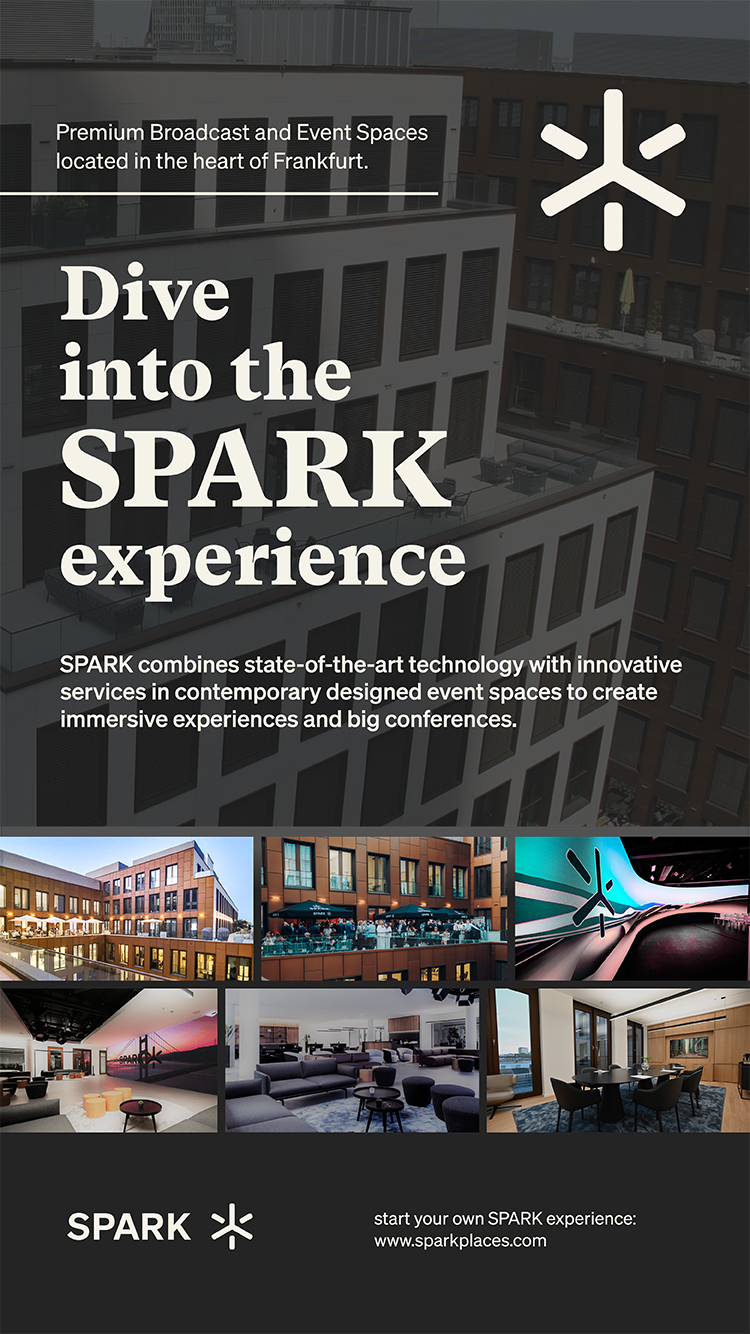
Interview René Tumler
"The importance of the event business is not recognised"
René Tumler has been Managing Director of the European Association of Event Centres (EVVC) since January. Photo: Christof Mattes
René Tumler has been Managing Director of the European Association of Event Centres (EVVC) since January. Photo: Christof Mattes
René Tumler manages the business of the European Association of Event Centres (EVVC). In this interview, the convinced European talks about quality of life through events, a political agenda, twin transformation and young talent as well as his shaking contribution to the EU Dialogue.
tw tagungswirtschaft: You were with the Association of the Southwest German Housing Industry (VdW südwest) and have been Managing Director of the European Association of Event Centres (EVVC) since January. What attracts you to the event industry?
René Tumler: People come together in event centres for a wide variety of occasions. They offer a place where coexistence becomes togetherness - regardless of the size of the event. Quality of life is created, among other things, by attending events. Alongside the economic importance of the event industry, this is a decisive factor that drives me to drive the association forward.
With your unbiased view: Which of your observations about the event business would you like to share with us?
Society and politicians do not yet recognise the event business in the totality and importance that it actually has. Many different associations and interest groups are trying to promote the industry's issues. The Forum Veranstaltungswirtschaft has already made initial progress towards speaking with one strong voice. However, there is still a lot of work to be done to give this industry the appropriate position in society and politics.
What could be the reason for this lack of awareness of the event industry?
The event industry is very diverse and encompasses a variety of sectors and services. This fragmentation can make it difficult to find a unified voice, formulate common concerns and speak with one strong voice. In order to improve the perception of the event industry, it would be important to emphasise its economic and social relevance more clearly, intensify lobbying work and increase its visibility through cooperation and networks. In addition, there is often a misunderstanding in society about the importance of events for cultural life, social integration and the economy. Many people see events as a luxury or leisure activity and not as an essential part of social life.
What three topics and challenges have you identified for the EVVC and its 600 member organisations in recent months?
The central issue follows on from the previous questions: perception and support from society and politics. Only if event centres are appreciated by citizens and the importance of such facilities - whether publicly owned or privately run - is recognised can we tackle further issues. The second topic is the twin transformation of our venues. This involves the joint further development of sustainability in its three dimensions of economic, ecological and social in conjunction with digitalisation. Digitalisation is the key to making sustainability more efficient and thus being able to offer attractive event centres in the future, regardless of whether they are new or existing buildings. This requires investment in the infrastructure of event centres. The third challenge I see is the entire field of human resources: whether it's working hours, staffing requirements or employer branding for companies and the entire industry. We are an industry that lives with and from people. Digitalisation can relieve us of certain tasks, but we still need employees who are passionate about events and want to bring them to life.

Photo: Christof Mattes, EVVC
"In order to improve the perception of the event industry, it would be important to emphasise its economic and social relevance more clearly, intensify lobbying work and increase visibility through cooperation and networks."
René Tumler, Managing Director of the European Association of Event Centres (EVVC)
How do you intend to tackle these challenges?
As the EVVC, we are currently developing a new medium to long-term strategy in order to provide our members with the best possible offer. This also includes the three topics mentioned above. A clear political agenda and strategy, which we are pursuing in Brussels, Berlin, Bern and Vienna, is needed to strengthen the perception of the industry. The National Council elections in Austria in autumn 2024 and the federal elections in 2025 are particularly challenging tasks in this regard. For the other two topics, we are pursuing the approach that we can offer our members solutions on three levels. Firstly: As the EVVC, we have an in-house solution. Secondly, we develop a solution together with our members. Thirdly, we have partners who can offer high-quality solutions that we have tested and recommend.
The latest Meeting and Event Barometer (Meba) repeatedly identifies the shortage of skilled labour as a problem: Staff shortages are (very) important for 87 per cent of organisers and for 80 per cent of provider companies. What is the situation in EVVC member organisations?
As in many situations, we have a very heterogeneous structure in the association, also in terms of staff shortages. This varies not only regionally, but often also locally. Nevertheless, it can be said that the topic of personnel is and will continue to be an issue for the future of our industry, particularly with regard to demographic change.
What can help people take up careers in the events industry?
There are a wide variety of measures that would make people want to work in our industry. Some initial ideas range from raising the profile and attractiveness of professions in the industry, mentoring programmes and highlighting career opportunities to promoting diversity and inclusion. Reconciling work and family life is a particular challenge in our industry, but it also offers enormous opportunities.
What measures is the EVVC taking in this context?
As the EVVC, we have placed the topic of personnel high on the agenda. We are currently developing a concept for how we can provide our members with the best possible support, which will of course always be tailored to the needs of our member organisations. We are also politically committed to making working hours more flexible in order to better meet the needs of customers and employees.

One team: the Executive Board and the office of the European Association of Event Centres (EVVC). Together they put the topic of personnel at the top of the agenda. Photo: Christof Mattes
Young talent is particularly in demand, which is why the EVVC MFT Symposium 2024 will open with the keynote speech "If you don't understand Generation Z, you'll lose!". There is (still) a lot of talk about Gen Z, but to what extent is the EVVC seeking dialogue with them?
The EVVC is one of the initiators of the Future Talents Day, which has been taking place for several years as part of the Prolight + Sound trade fair at Messe Frankfurt and now also at the Reeperbahn Festival in Hamburg. We are also in constant dialogue with our members and their employees. We are also planning further activities to establish an even better and more direct connection to the young talents of Generation Z. Incidentally, Generation Z also includes some employees from the EVVC team, whose achievements I am proud of.
With 2.15 million events in 2023, Germany will reach three quarters of its pre-coronavirus volume from 2019 (Meeting and Event Barometer, Meba). Austria has already reached its 2019 level and will have its strongest year ever in 2023 with 26,144 events (Meeting Industry Report Austria, mira). Do you have an explanation for this - after all, you are Austrian and work in Germany?
The achievements of the German and Austrian event industry, especially during and after the coronavirus pandemic, are incredible. The fact that an industry has recovered so quickly is thanks to everyone who works in it and is committed to it. I believe that the sheer number of events does not reflect the state of the industry. In addition, the study of mira and Meba is based on different data and a different scientific approach. I believe that both Austria and Germany have unique selling points in the event industry and can strengthen them. Nevertheless, I am convinced that cooperation in the DACH region can also bring benefits for the industry. If you look at the ICCA Ranking 2023, for example, the DACH region is the world's number one MICE organiser - ahead of the USA.
In addition to member support and internal association management, political lobbying is one of your core tasks. In recent years, the EVVC has mainly been active in Berlin and little in Brussels. Are you going to change that?
As a convinced European, I believe that representing our interests at European level is also sensible and important. Whether we carry out this representation of interests as the EVVC or together with partner associations has not yet been finalised. The aim is to be represented at the right political levels for our members, to introduce issues and to assert interests, regardless of whether this means a presence in Brussels, Berlin, Bern, Vienna or in one of the many national and cantonal capitals.
For which three issues will you advocate at national level, and for which three issues at European level?
As the EVVC, we are currently working on a position paper with our key demands to politicians. We will present this in the near future. It is designed to bring the important issues of event centres into the political process. However, it is also often necessary to react to events and developments.
Let's assume the "EU Dialogue - Driving Positive Change in the Meetings Industry" continues next year and you are invited as a speaker. Which (favourite) topic would you like to speak about?
The panel at this year's "EU Dialogue - Driving Positive Change in the Meetings Industry" was very high-calibre and also scientific. I could give an insight into practice, but this would be limited to the view of our members and the association. Based on my personal background and my experiences in recent months, I would speak on the topic of "Perception of event centres by the public and politicians". On the one hand, this contribution should be a wake-up call to achieve an even better perception, but also show ways in which this can be achieved.
New for our international readers:
For the first time, we are offering an English version of our magazine in addition to the German edition. The translation was made with the help of AI and is currently in the test phase. We’d love to hear your feedback on this new service!

